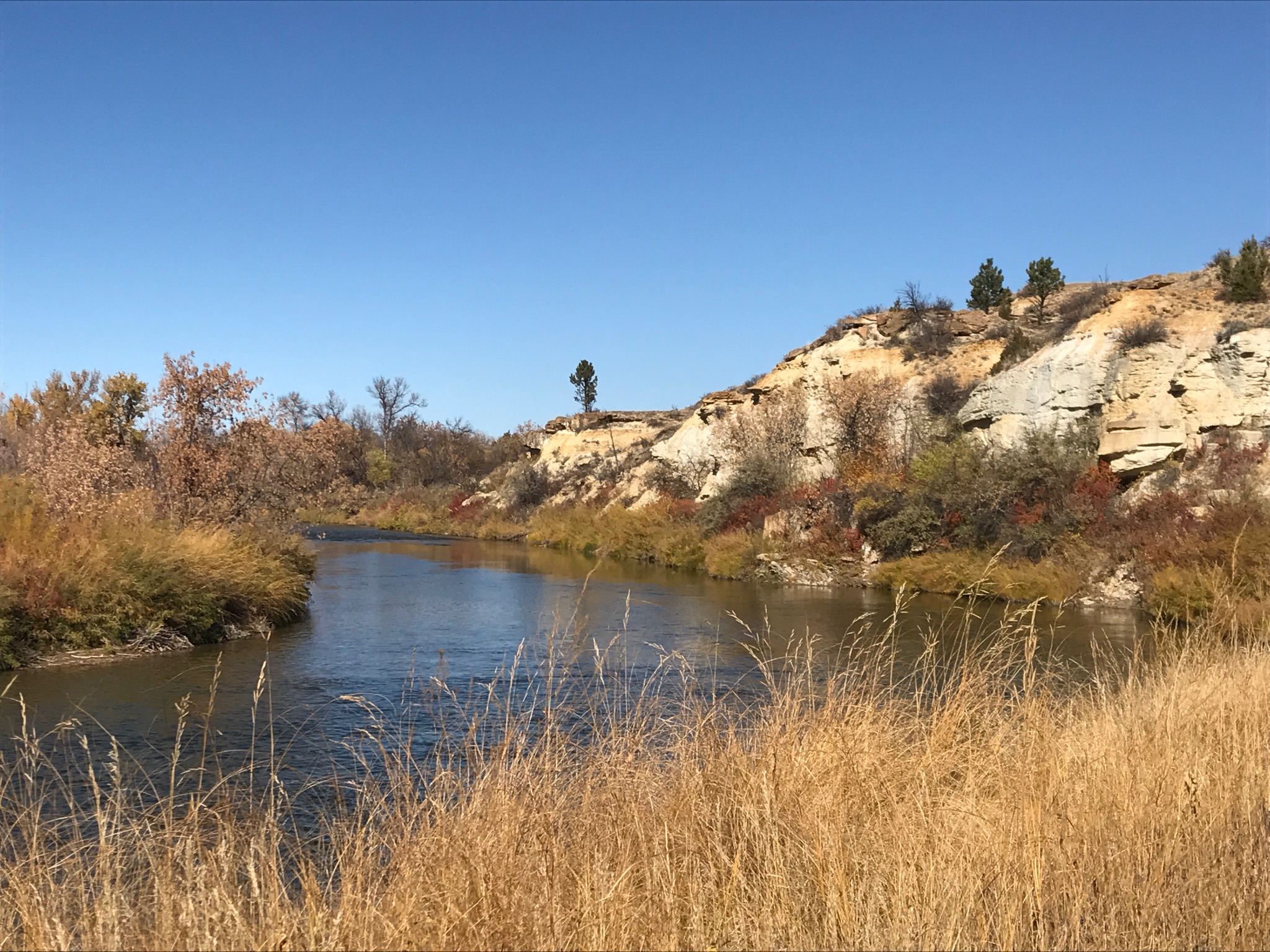
It’s day 57. On the schedule for today, two guest speakers. First, we’ll be meeting with one of the men who was key in defeating a major proposed coal development. At this point we’re used to being presented with multiple viewpoints of an issue, we’ve even come to expect it. Sometimes we get these viewpoints over the course of a week, or even just a few days. And then there are some days when we see them both within a matter of hours. This was one of those days. We learn that just a few hours after meeting with our first speaker, we’ll be touring an open pit coal mine.
Not long after waking up, we head to meet with our first speaker of the day, Clint McRae. He and his father were major opponents of extracting the coal found in Otter Creek, one of the largest coal deposits in the world. We also learned they fought in opposition of the Tongue River Railroad, a railroad proposed as the main method of transporting said coal. After learning all of this about Clint, I was greatly taken aback to hear him open with the words “I’m not anti-coal.” But you see, Clint McRae is hardly what you’d call a communist, environmentalist, rock-licking hippie. He’s a fourth generation Montana cattle rancher.
He expanded his statement, “I’m not anti-coal, but I expect the neighbors of these facilities to be treated right. And they haven’t.” He explained coal in a way that seemed completely non-partisan. It wasn’t about whether this political party was invested in coal, or if that one was opposed to it. For him, it came down to protecting his land, and the land of his neighbors, for future generations.
It seemed to me that Clint was touching on something we’ve been studying continuously for the past two months, the 80/20 rule. This rule says that with any given mix of people, you may never be able to reach an agreement on 20 percent of the issues. These are things fundamental to people’s identities that they are not willing to compromise on. The other 80 percent, however, is often surprisingly easy to agree upon. In general, we all want a good future for the next generation, and often, we all just want to keep things the same as they are.
This type of conflict resolution is key in reaching understandings. We are living in an era in which there is a stark division between the ends of the political spectrum. Journalist Naomi Klein says this “culture-war intensity…is the worst news of all, because when you challenge a person’s position on an issue core to his or her identity, facts and arguments are seen as little more than further attacks, easily deflected”. Clearly, facts and figures are not always key to cooperation. Understanding what people value is.
With this mentality of being open to listening to the values held by opposing sides, I tried to keep an open mind while touring Spring Creek Mine. Right from the start, it was easy to see that the people who worked there were not evil or malicious. They were good people doing what they believed to be best for them, just as Clint was. They were proud of the care Spring Creek took while extracting coal and then attempting to reclaim the landscape, and maybe rightly so. They were certainly making better efforts than any company I’ve seen back home on the east coast. Are these actions enough to qualify Spring Creek Mine as a responsible coal operation? I’m certainly in no place to decide.
I’d like to end with another quote from Clint. Echoing his opening statement, he passionately asserted, “I don’t have a problem with coal development if it’s done responsibly, but I’m beginning to wonder if it can be done responsibly.” These should be the questions we ask ourselves. The lines we draw shouldn’t be between parties, but between what is damaging to the land and to future generations, and what is not.